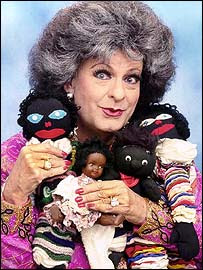Quote of the week
Such traditions that are culturally embedded in the white, male, Afrikaans culture and history, which are the basis of the Nagligte traditions, do not foster inclusion of other groups that must now form the new majority of the SU student body. Wilgenhoffers do not seem to appreciate the negative impact of their culture and rituals on the personal rights of certain individuals. This is because they elevate belonging to the Wilgenhof group above the rights of the individual.
O Vlok, the past is unpredictable. . .
The present brouhaha about the prosecution of Adriaan Vlok and allegations of wrongdoing by ex-President FW de Klerk reminded me of the comment Evita Bezuidenhout made about the Truth and Reconciliation process. “The future is certain,” she remarked, “but it is the past that is unpredictable”
We will always be fighting about the past, Evita seems to say, because what the “accepted” view of the past is in a society, depends on our view of the present. If we were now to agree that Vlok and De Klerk gave illegal orders for people to be killed or (more likely) turned a blind eye so that the foot soldiers could harm or kill the opponents of the apartheid state, we must accept that there is no moral equivalence between the De Klerk’s and the Mbeki’s of our world.
For most South African’s this is a no-brainer. The one side supported a system that was declared a crime against humanity and the other side fought for liberation and freedom, so for most people there can never be moral equivalence between the apartheid state and all those white people who supported it on the one hand, and the ANC, on the other hand.
But for many white South Africans who have never come to terms with the horror of apartheid, it seems impossible to admit this and so they keep on arguing that the two sides “both did bad things” that we now have to forgive and forget.
However, that was not the (deeply problematic) compromise reached when the Truth and Reconciliation Commission was set up. It was agreed that we will only forgive that which was known, so that we could remember the evils committed in the past and could ensure that it be avoided in future.
What some of us did not know was that in its last years the apartheid state had made it impossible for us to know and thus to remember their evil deeds. As Terry Bell reported in a fascinating article in the Cape Times, during its last years in office it destroyed tons of files and other documentary evidence of the past.
Up in smoke went any chance of really finding out how evil the apartheid system was and to what extent the leaders like Vlok and De Klerk knew or orchestrated the torture and killing committed by security forces or their surrogates in the late eighties and early nineties. Thus De Klerk’s so called halo was kept in tact. That is also why he went to court to prevent the Truth Commission from making findings that would adversely affect his standing (and indirectly the standing of all white people who supported the system).
The present fight is therefore deeply meaningful because it is about who can be called “good” and who “bad”. Of course the ANC also did bad things, but like
This is because Vlok and De Klerk will find out that the past is unpredictable and that we will continue to re-interpret it in favour of the ANC as our society changes and the power of the De Klerk’s and their constituencies in South Africa diminish.
This is why some people get so upset about the ANC and pour scorn on everything it does. As anyone who reads this Blog will know, I have often criticized the ANC government for stupid and unwise decisions, but that is different from trying to discredit the government as government. Those who do the latter (some of them commenting at length on this Blog), seem to protest too much.
History will judge them harshly. More harshly, I would think than anyone in the ANC today – including fools like Yengeni and McBride.


